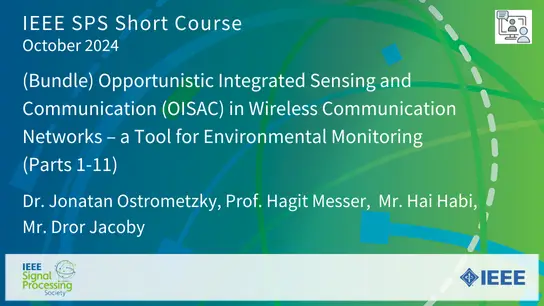ON THE POTENTIAL OF SPATIALLY-SPREAD ORTHOGONAL TIME FREQUENCY SPACE MODULATION FOR ISAC TRANSMISSIONS
Shuangyang Li, Jinhong Yuan, Weijie Yuan, Giuseppe Caire
-
Members: FreeSPS
IEEE Members: $11.00
Non-members: $15.00Length: 00:17:19
09 May 2022
In this paper, we study the potentials of spatially-spread orthogonal time frequency space (SS-OTFS) modulation for integrated sensing and communication (ISAC) transmissions. The most favourable feature of SS-OTFS modulation is that it forms beams according to a pre-determined angular grid, which is different from the conventional beamforming, where dedicated beams are formed according to the a priori information on the angle of departures (AoDs). According to the delay-Doppler domain channel characteristics, we first derive the input-output relationships for SS-OTFS-enabled ISAC system in a typical downlink multi-user MIMO (MU-MIMO) scenario. Based on those relationships, we further study the angular domain channel features and discuss the system design. Our numerical results have demonstrated the advantages of the proposed scheme over the conventional beamforming counterpart in terms of the signal-to-interference-plus-noise ratio (SINR).



